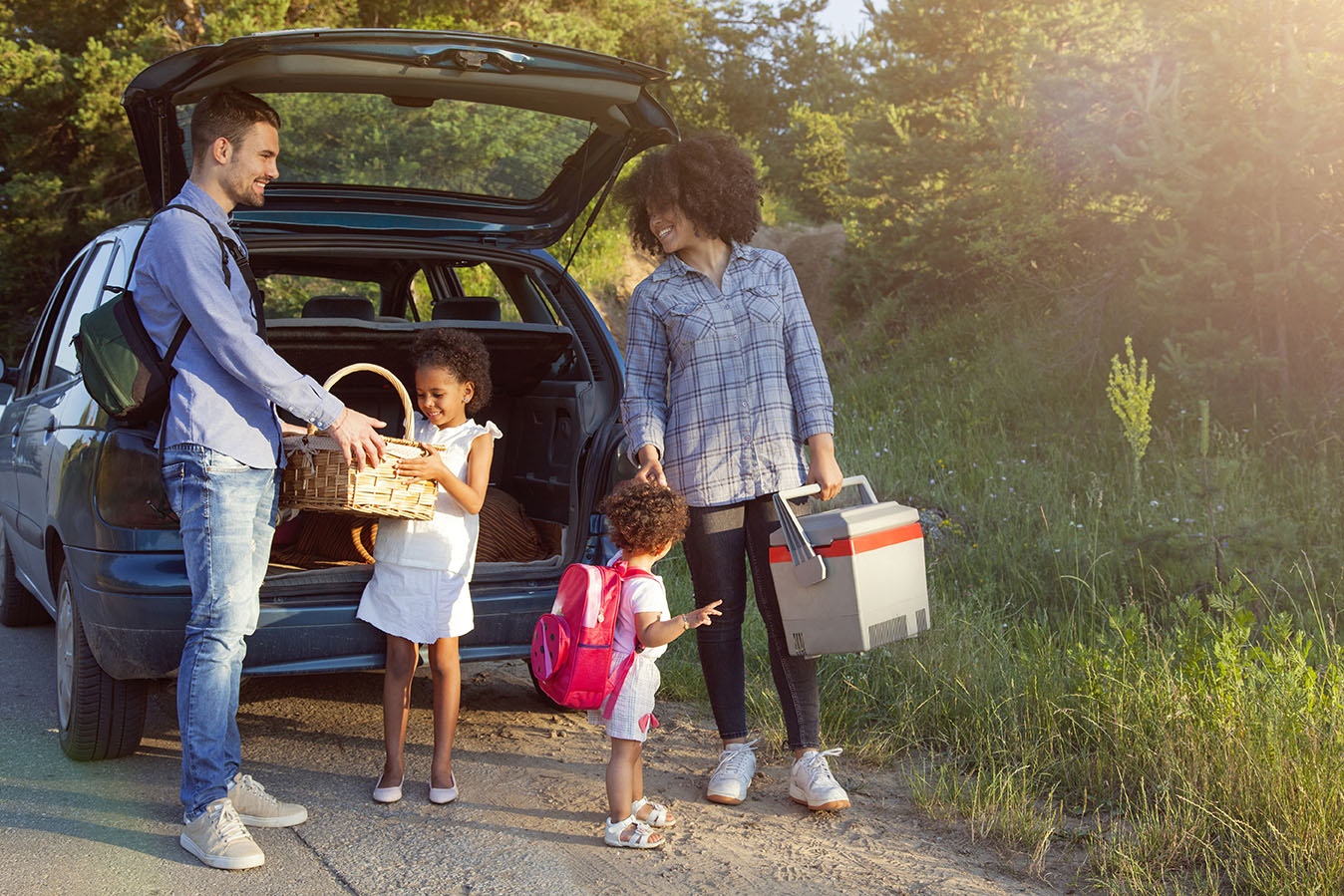
Before the summer closes out, many will embark on one last getaway. While you’re packing the suntan lotion, bug spray, and camping gear, don’t forget your fundamentals for food safety.
Road Trip
If you’re bringing perishables in your car, have a cooler large enough to hold plenty of ice or freezer packs to keep these foods at 40°F (4°C) or below.
- Pack perishable foods directly from the refrigerator or freezer into the cooler. Meat and poultry may be packed while it is still frozen. Use a food thermometer in your cooler to make sure your food stays chilled at 40°F (4°C) or below.
- Keep raw meat and poultry wrapped separately from cooked foods, or foods meant to be eaten raw such as fruits.
- For long trips, take two coolers—one for the day’s immediate food needs, such as lunch, drinks, or snacks, and the other for perishable foods to be used later.
Camping
After you find the perfect spot, place the cooler in a shady spot and cover with a blanket, tarp, or poncho, preferably one that is light in color to reflect heat.
- Bring along bottled water. Water in streams and rivers is untreated and not safe for drinking.
- Keep hands and utensils clean when preparing food. Wash your hands with soap and water for at least 20 seconds. If you do not have soap and water, use an alcohol-based hand sanitizer that contains at least 60% alcohol.
- Think about buying shelf-stable food to ensure food safety.
Beach
For your beach trip, remember to bring only the essentials.
- Partially bury your cooler in the sand, cover it with blankets, and shade it with a beach umbrella.
- Bring soap and water or an alcohol-based hand sanitizer that contains at least 60% alcohol to clean hands if soap and water are not available.
- Don’t eat anything perishable that has been sitting out for more than 2 hours. Don’t eat perishable food that has been exposed to temperatures above 90°F (32°C) for more than 1 hour (like on a hot beach day).
Have Questions?
Talk to a food safety expert and get answers to your questions about grilling.
- For non-meat food products (cereals, fish, produce, fruit juice, pastas, cheeses, etc.), call the FDA at 1-888-SAFEFOOD (1-888-723-3366).
- For meat, poultry and egg products, call the USDA Meat and Poultry Hotline at 1-888-MPHotline (1-888-674-6854).
- For more questions about food safety or chat live at ask.usda.gov from 10 a.m. to 6 p.m. Eastern Time, Monday through Friday.

